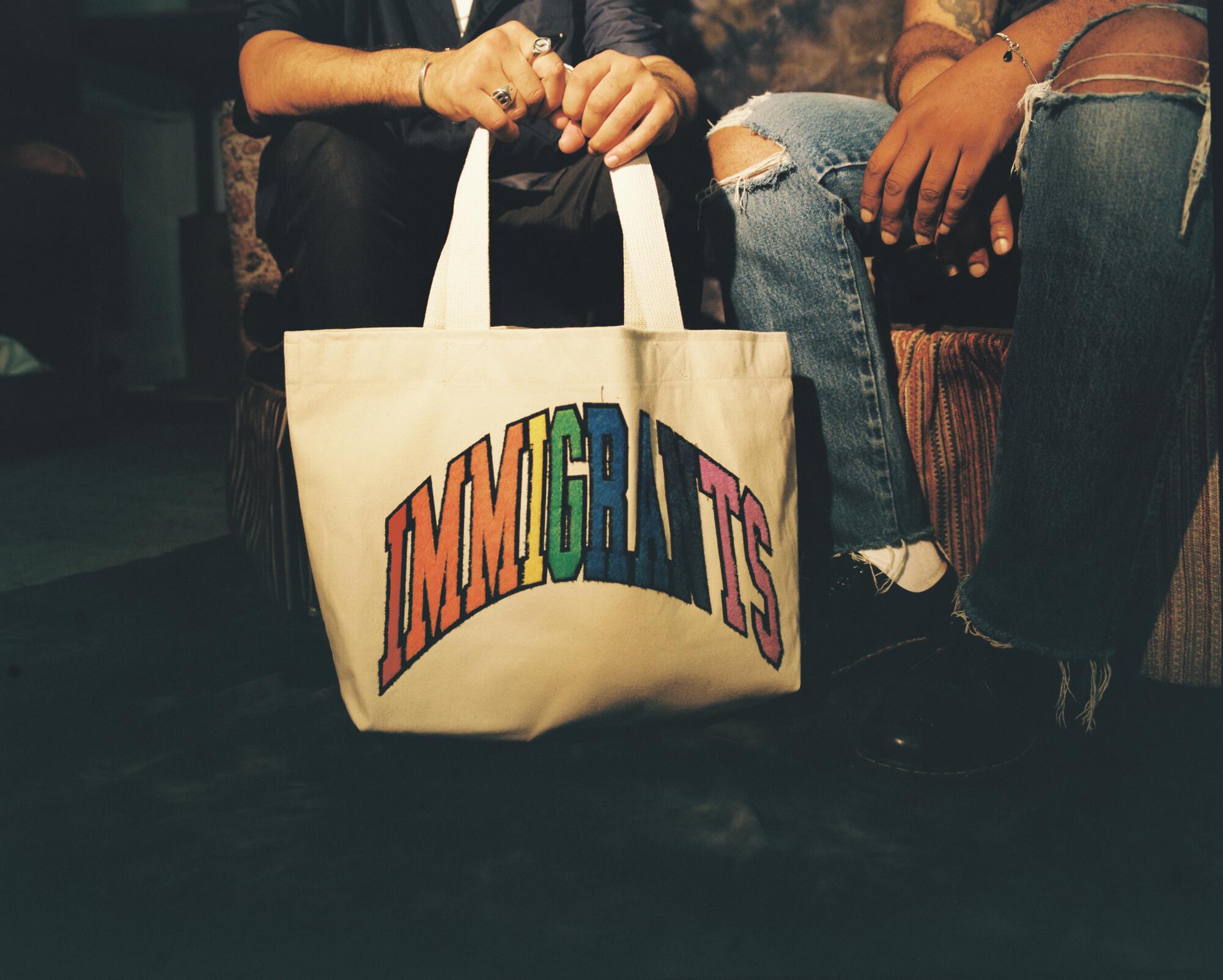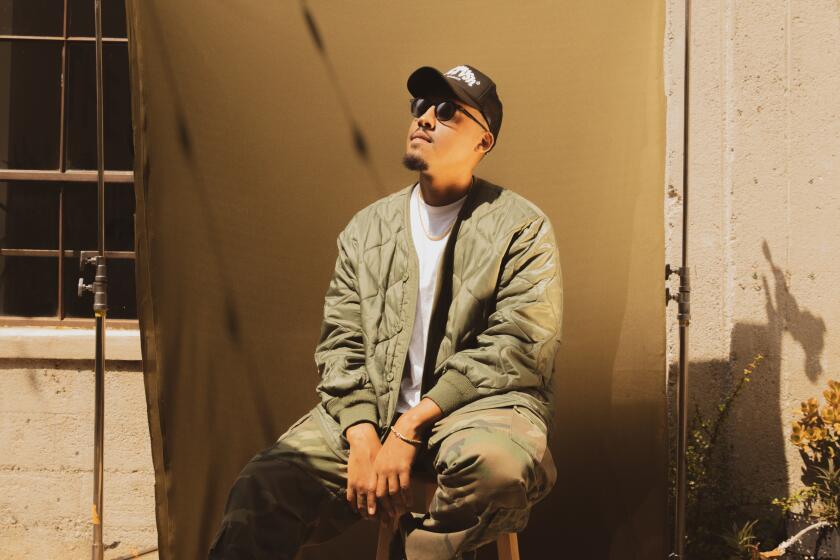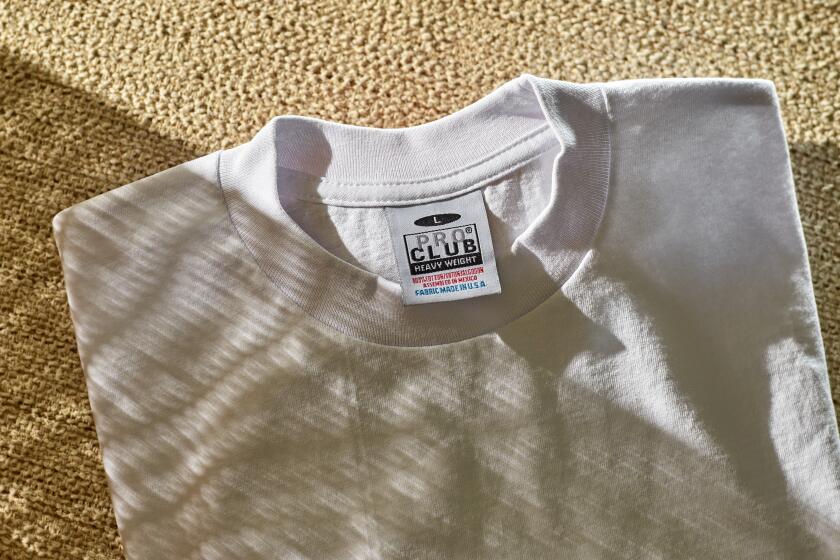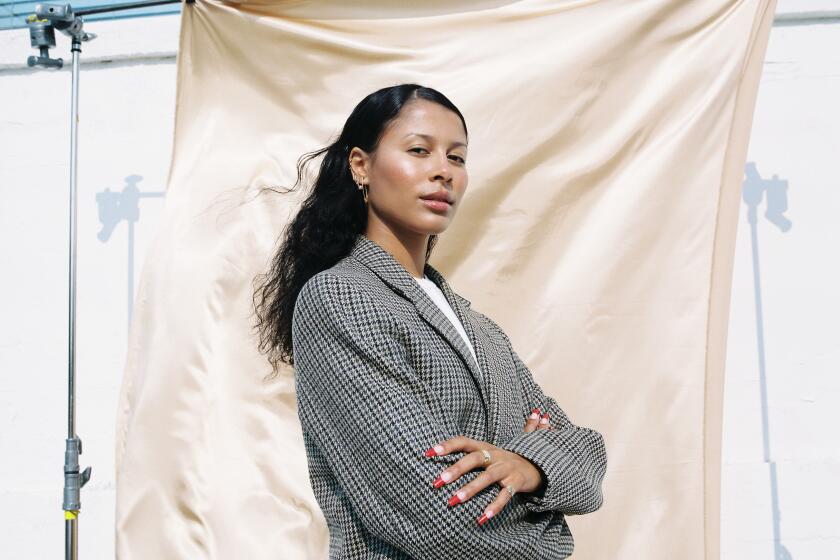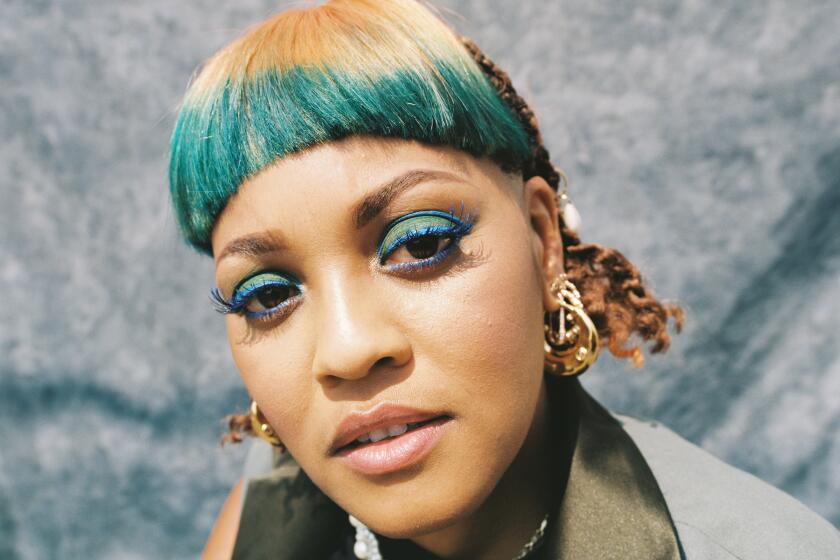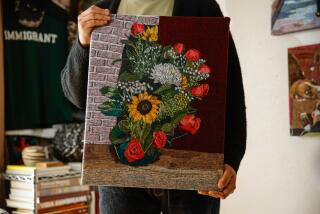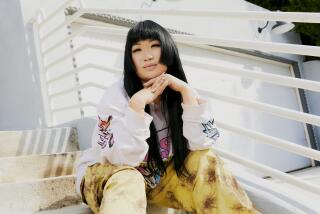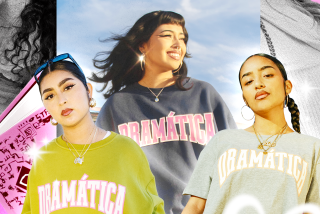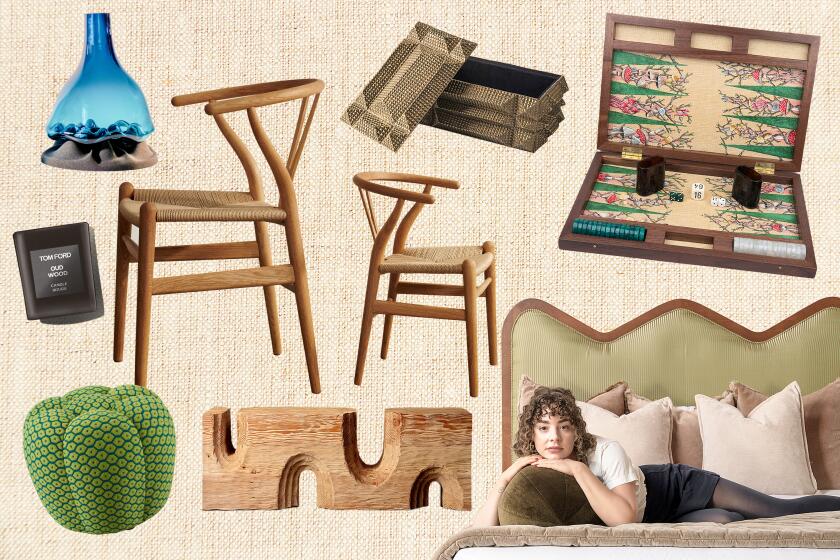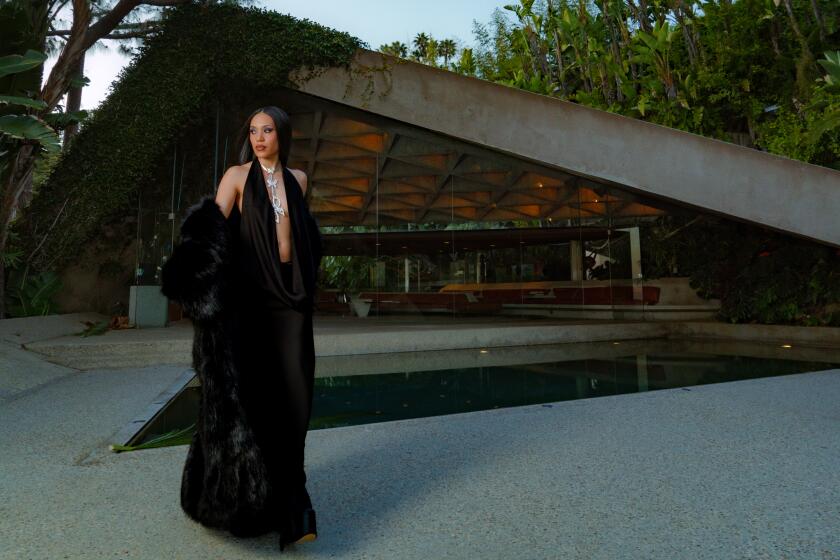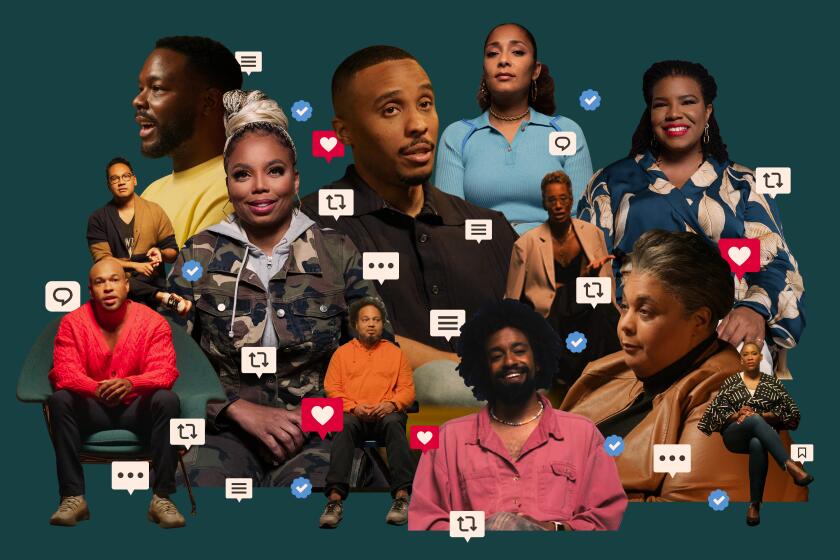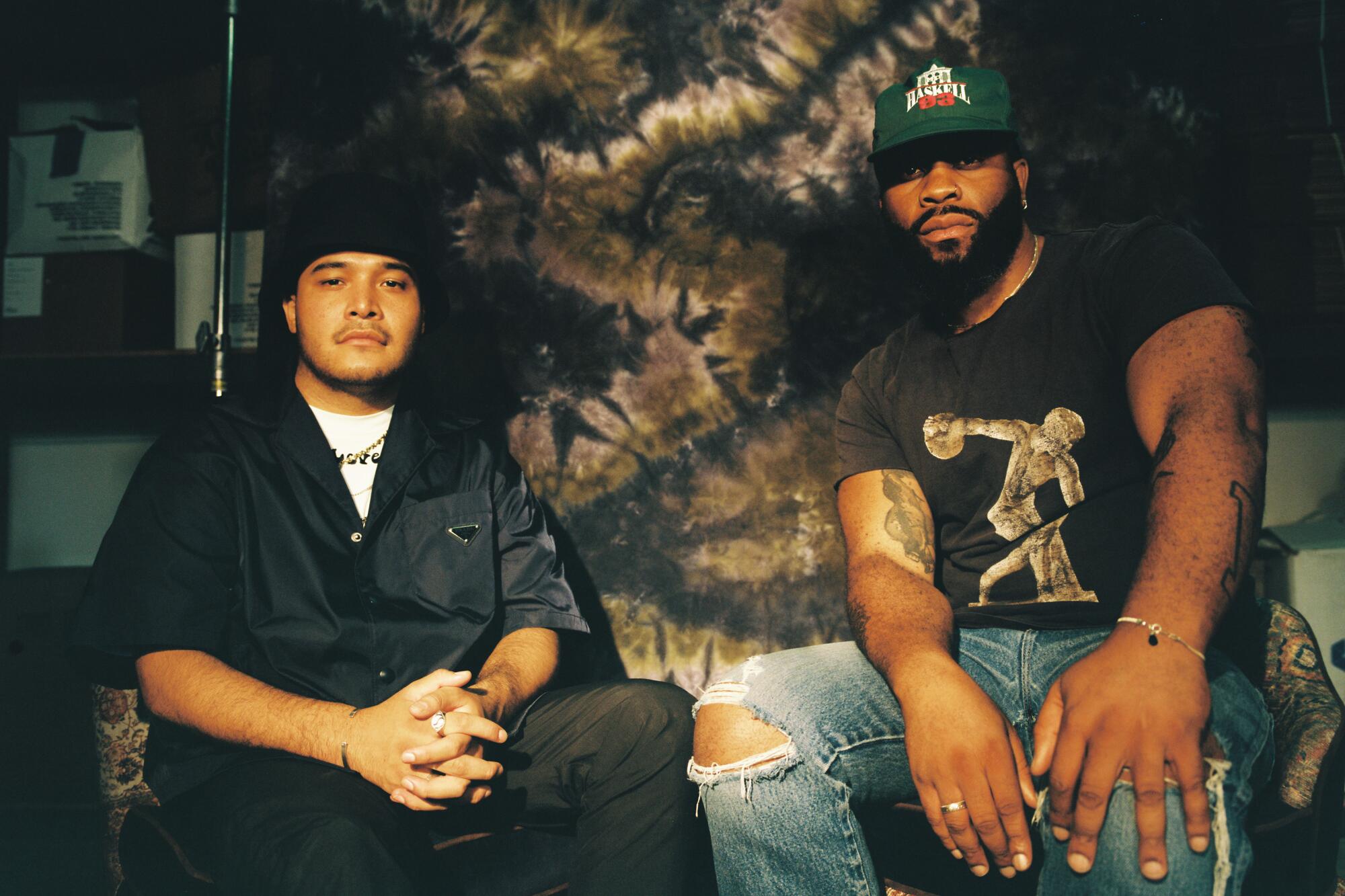
This is part of Image Issue 4, “Image Makers,” a paean to L.A.’s luminaries of style. In this issue, we pay tribute to the people and brands pushing fashion culture in the city forward.
There’s something special that happens when Daniel Buezo and Weleh Dennis get in a room together. Their bond, forged through the creation of their brand Kids of Immigrants in 2016, is revealed in the way each uses his chance to speak only to hype the other’s accomplishments.
“I am just super proud of him and what he’s doing,” says Dennis of Buezo. “He says I inspire him, but he inspires me.”
For these founders, wholesomeness reigns supreme. Their clothing dedicates itself to things like love, friendship, family and empowerment in a way that feels almost rebellious in a world that rewards hype. It has captivated a fan base in L.A. that aspires to some kind of deeper meaning too. After all, how many times have you seen someone wearing a T-shirt or carrying a tote bag with one of Kids of Immigrants’ instantly recognizable slogans — “SUPPORT YOUR FRIENDS”; “LOVE HAS NO LIMITS”; “ANYTHING IS POSSIBLE” — and thought to yourself, “I want that for me.”
Irony and cynicism belong to the bygone days of a pre-pandemic era. In 2021, earnestness is in. Authenticity and honesty too. They are the only things that make sense anymore. Kids of Immigrants has been building the foundation for years; now the world is ready to embrace the vision.
“Our currency is love,” Buezo says.
Daniel Buezo: I’m a Gemini.
Weleh Dennis: Taurus.
DB: It’s not the easiest relationship, but if you try to understand one another it can be rewarding. I think the brotherhood and friendship is the center of it all. It allows us to move [in] very fluid ways. There’s no ego because we’re on the same mission and we understand each other’s intentions. We used to say back in the days: If Weleh’s going to run the ball, I’m just gonna do the blocking so he can score the touchdown, and vice versa. We officially met in 2013 through a mutual friend [David Ali]. The first day we met, I was like, “Yo, can you sleep over, bro?” We just kept talking. We wanted to work together, so I was like, “Let’s work.”
WD: Facts.
DB: I think it was a combination of two people who really love style and fashion, but also we have a raw edge. We’re not the very typical fashion person. I’m from the ’hood. Meeting Weleh was like, “Oh, he’s a real one, but he loves fashion.”
WD: For me, having that classic training in fashion but coming from the world we’re in, I saw the dualities of what people from the fashion world couldn’t understand and what people from our world couldn’t translate. [Dennis studied fashion design at the Academy of Art University in San Francisco.] It helps us speak through our own language: We’re not trying to cater to the high-fashion world, and we’re not trying to cater to what they would consider “urban.” It’s just us. With Kids of Immigrants, we’re talking about love. We’re talking about appreciation for our parents and the hardship of our upbringing. Our thing was taking pride in each other and then seeing that in our community.
Image Makers stories
Jason Parham on the white t-shirt that changed L.A. fashion forever
Supervsn is creating streetwear from its highest self
Sami Miró has the secret to making sustainable fashion work
Black Market Flea is the connective tissue for Black-owned fashion in L.A.
Who will survive the skinny jeans wars in Northeast L.A.?
DB: I worked at Opening Ceremony, Weleh worked at Louis Vuitton. We loved all that but it was hard to present at that level. [Buezo was also a stylist, working with artists including Kehlani while managing her tour; Dennis ran his own brand, Weleh California, where he made handbags and accessories.] When we moved to Los Angeles, that’s when we knew Kids of Immigrants was it. I lived in Pico-Union. We would take walks at MacArthur Park at 6 a.m. — where you can buy anything from a taco to a shoe to a shirt to a fake ID — just to feel that vibration. The hustle and bustle. The immigrant ingenuity and spirit that’s all around.
WD: Everyone could list out the differences between Daniel being from Honduras and me being from Liberia, but no one is really trained or aware to look at the similarities. [Both first-generation Americans, Dennis was raised by Liberian parents in Sacramento, Buezo by Honduran parents in Brooklyn.] I always saw similarities with us. And I think that’s what we see with the people who wear the clothes: There’s a whole ton of differences with everyone coming from different places, but what are the similarities? Because at the end of the day, we’re all human. I’ve tried to focus on these humanistic levels of connection.
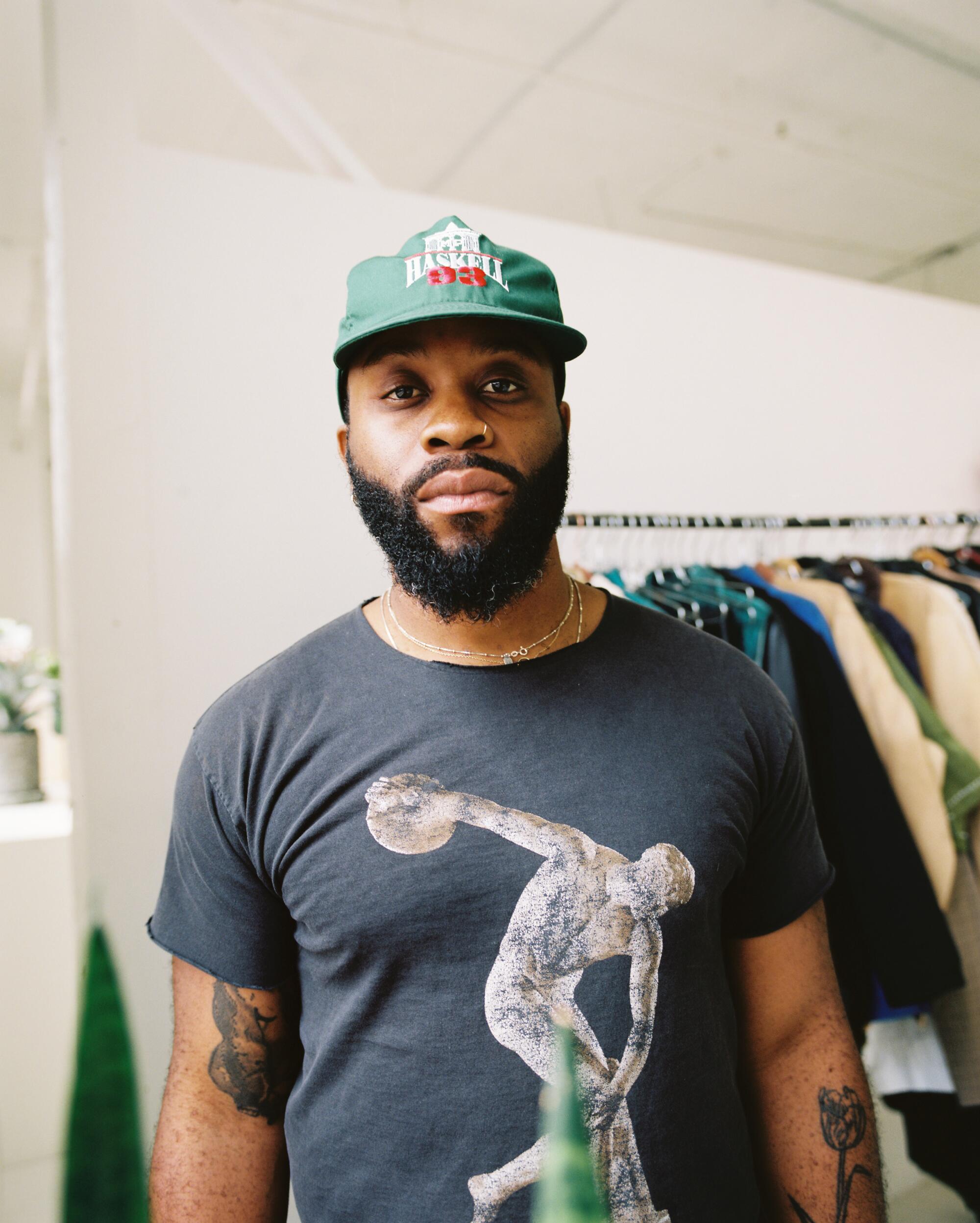
DB: In the first few years, it wasn’t easy. It wasn’t like, “Oh, this is the dopest brand out there.” But I think L.A. gave us an opportunity to do it. And if you live in L.A. or have visited L.A., you see the immigrant culture in everything and everywhere.
WD: Ralph Lauren is a big inspiration; he’s a kid of immigrants, you know? Ralph Lifshitz. But us, we don’t have to re-create ourselves. You don’t have to re-create yourself to tell people about the American story. If anything, you actually have to be yourself.
Clothes from Supervsn, L.A.’s premier streetwear energy brand, are designed and manufactured with ‘high-frequency vibrational energy.’
DB: L.A., more than ever, in 2021, is a driving force in the fashion world. It feels super community-based. We came out the gate understanding how fashion can separate all of us. So we wanted to make something that didn’t do that but instead brought us all together. That not only looked good but felt good. When you’re wearing a shirt with a big-ass “LOVE” logo, we want you to actually feel that. L.A. gave us the opportunity to bring love through clothes to the world.
WD: The thing that I’m proud of is seeing a cool young hip-hop artist wearing a Kids of Immigrants T-shirt and then seeing a teacher that is really into fashion, style and taste wear one. They’re both wearing that proudly for their own reason.
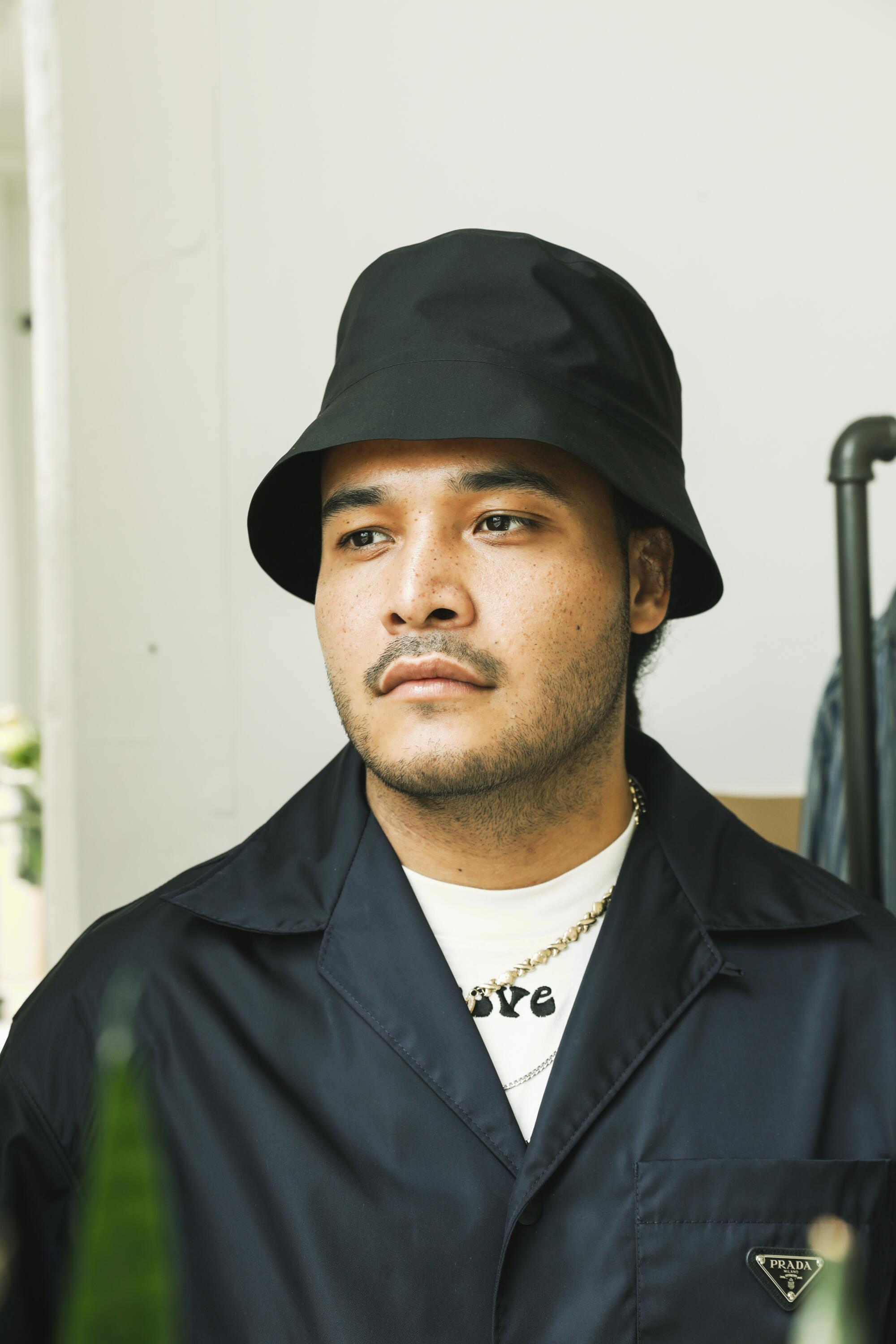
DB: We’re just real. What we articulate through our designs or through our social channels is the people you’re going to meet. We’re in this journey of self-awareness and self-evolution.
WD: When we’re doing things and I hear, “Oh, you guys are about community.” That word is weird to me at times because I’ve never used it. I’ve never had to use it. It’s just part of upbringing.
DB: Us being community-driven, it’s not a marketing plan. It’s just who we are.
WD: I know people don’t consider us a luxury company. But I think we’re the most luxurious company when it comes to the way we think: Love is a huge luxury. We’re trying to put a face to love; color palettes, shapes, events, conversation to love.
DB: What we’re representing is so much more than just clothing. To see the shift in consciousness that’s happening right now — we’re happy that we took those steps years back, because now it feels more like home.
WD: It’s not a performative thing. It’s just presenting joy, coolness and positivity in a very well-thought-out way.
DB: What is next for us is beyond our imagination. It’s so much more than just, “I’m looking forward to our next collection” — which I am, of course — but when you have these sort of values, things can go into places that you will never imagine.
